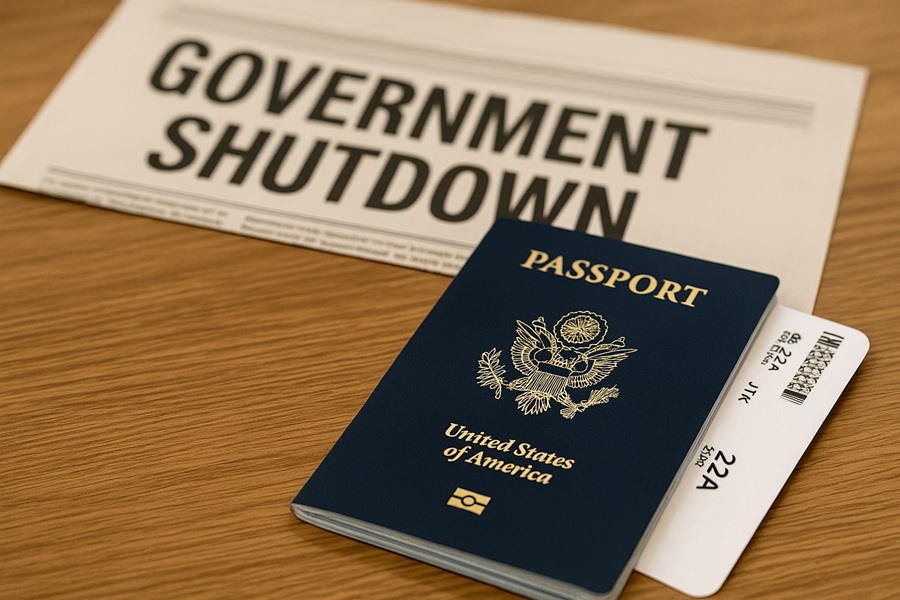With the federal government partially shut down, many travelers are understandably nervous about how this might affect passport processing, visa services, airport operations, and upcoming trips. The reality is that while some services continue more or less as usual, others can slow down or become unpredictable. Here's what you need to know and how to plan ahead.
Passport & Visa Services
Passport and visa processing typically continues during a government shutdown because these services are largely funded by application fees, not annual congressional appropriations. So, in most cases, you can still apply for or renew a passport, and U.S. consulates abroad will continue issuing visas.
However, this doesn’t mean it's “business as usual”. If certain passport agencies or consulates run low on their fee reserves, or if the shutdown drags on, they may shift resources toward urgent and emergency cases only. Some passport offices are located inside federal buildings, which could have reduced public access during a shutdown. This means even if the service itself is funded, the location might be affected.
Immigration & Border Operations
Most immigration processes that rely on filing fees - such as applications through USCIS - will continue to function. But programs or processes that depend on government appropriations, such as certain labor certifications or employment verifications, may temporarily pause.
Border inspections and customs operations are considered essential, so U.S. borders remain open and travelers can continue to enter and exit the country. However, these staff are required to work without pay during the shutdown, which can lead to staffing strain, slower processing, and increased wait times at busy entry points.
Air Travel & TSA Screening
Air traffic control, TSA screening, and airport operations continue during a shutdown because they’re classified as essential. That said, when staff are working without pay, morale and attendance can drop. This can translate into longer security lines, slower screening procedures, or even isolated temporary disruptions. Travelers should build extra buffer time into their airport plans to avoid unnecessary stress.
National Parks & Non-Essential Federal Services
If your travel plans involve visits to national parks, monuments, or federal museums, be aware that these may be closed, partially open, or operating with minimal staff. Visitor centers might not be open, and maintenance or safety services could be reduced. Always double-check the status of any federal site before including it in your itinerary.
What Travelers Should Expect
While passport and visa services are likely to keep running, travelers should anticipate longer processing times and localized disruptions. Some consulates may reduce hours or prioritize emergencies if resources become strained. In the U.S., airport delays are likely the biggest practical impact most travelers will face. If the shutdown continues for an extended period, downstream effects - like document printing backlogs or slowed mail transit - could add further delays.
Tips to Mitigate the Impact
- Apply Early
If you need a new passport, renewal, or visa, don’t wait. Apply as far in advance as possible to avoid last-minute stress. - Consider Expedited Service
Paying for expedited processing can help offset potential delays in the system. - Check Office Status Before Appointments
Especially for in-person visits, confirm that the location is open and operating normally during the shutdown. - Allow Extra Time at Airports
Longer TSA lines and slower security checks are common during shutdowns. Arrive earlier than usual for domestic and international flights. - Monitor Official Updates
Keep an eye on updates from the State Department and relevant agencies. If the shutdown continues, some services may adjust their operating status. - Have a Backup Plan
If your passport or visa doesn’t arrive in time, know your airline’s refund or change policies, and have a contingency plan ready.
Final Thoughts
The key takeaway is that most passport and visa services continue during a U.S. government shutdown, but delays and inconveniences are very possible. By applying early, staying informed, and allowing extra time for travel, you can minimize the impact on your plans - even during uncertain times.


